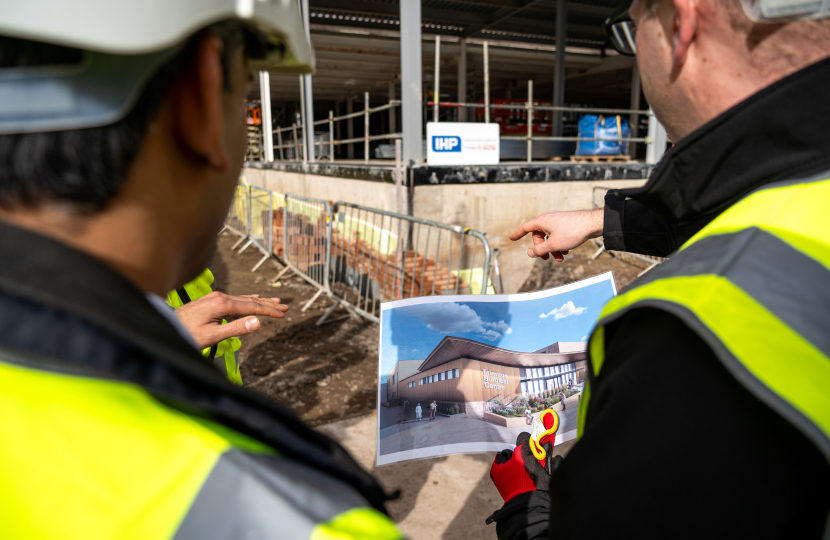
It is almost five years exactly since one of the biggest public meetings ever held in Northallerton took place in the old Grammar School.
The school hall was packed to overflowing to discuss changes to the town’s Friarage Hospital.
I had called the meeting after the hospital trust took the decision – at short notice – to downgrade the A&E department because it could not recruit the doctors to run it safely.
Public concern – not just in Northallerton but the huge rural area to the west into the Dales – was understandably high.
The two senior doctors and managers involved in that decision – Adrian Clements and James Dunbar – spent almost two hours answering questions from the audience about the hospital’s future. There was a fear, widely expressed at the time, that the hospital would ultimately close.
They set out their plan for future emergency care at Friarage which has turned out to be the right one. Today 90 per cent of emergency care cases are still treated at the Northallerton hospital and its future is secure.
I chaired the debate that evening and at one point I asked the doctors what was the one thing that would help them to recruit colleagues to work in Northallerton and secure its future. Without hesitation, Dr Clements said: new operating theatres.
It was the first time that had been raised with me as an issue but that evening I vowed to see what could be done.
So, four years later I was thrilled to attending the groundbreaking ceremony on the site of the hospital’s £35.5m surgical hub and then last month have the privilege of laying some of the first bricks for the development.
In many respects, the surgical hub with its eight operating theatres represents a complete turnaround in the hospital’s fortunes.
We have had five years of solid investment in services with the new cancer, eye, and kidney dialysis units opening, an education centre to train more doctors and nurses to work there and also a rapid diagnostics centre.
The surgical hub is the game changer. As Dr Clements said five years ago, if you can show doctors state-of-the-art facilities it makes a huge difference in recruiting them to a small rural hospital like the Friarage when a big city hospital might seem a more attractive career option.
That was the biggest problem we faced with the Friarage in the past. Because it was so small, it was not an attractive place to work for young and ambitious medics.
The £35m-plus being spent to build the hub is a massive demonstration of the local health trust’s and the Government’s commitment to the Friarage.
Along with the development of the other new services that have become available in recent years, it means more of us receiving treatment at our local hospital, with fewer trips to James Cook University Hospital at Middlesbrough.
Throughout this five-year period, my role as your MP has been to work with doctors and local health managers to make the business case to NHS England and Government for this investment.
I cannot praise our Friarage doctors, managers and other staff enough for the work they have done to help make the case for how a small hospital serving a huge rural area can have a sustainable future.
The Friarage is now a centre of excellence and a model for how rural hospitals can operate effectively.
Every brick laid as the surgical hub work moves towards completion next year is another brick in the wall of confidence for the future of our much-loved Friarage.
What a difference from the fears expressed in that school hall five year ago.
